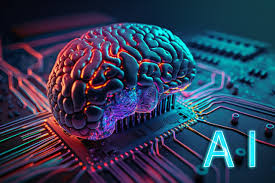
Zimbabwe must embrace emerging technologies such as artificial intelligence (AI) for the economy to remain competitive, economists have said.
World economies are grappling with disruptions due to advancements in AI with institutions such as the International Monetary Fund (IMF) predicting rapid technological transformation in the coming few years.
An IMF study found out that in advanced economies, about 60% of jobs may be impacted by AI.
The same study said in emerging markets and low-income countries, AI exposure was expected to be 40% and 26% respectively.
Most of the poor countries such as Zimbabwe do not have the infrastructure or skilled workforces to harness the benefits of AI, raising fears that over time the technology could worsen inequality within the global economy.
Vince Musewe, a Harare-based economist, told Standardbusiness that quick adoption of AI would ensure that Zimbabwe is not left behind.
“In the labour market, if AI, robotics and automation, are widely deployed across the economy, there will most likely be job creation (as a result of demand in sectors that arise or flourish due to this deployment), as well as job destruction (replacement of humans by technology),” Musewe said.
“There is no doubt that adoption of these new technologies will result in significant workforce shifts across sectors of the economy, accompanied by changes in the nature and content of jobs, which would require reskilling.”
- Harvest hay to prevent veldfires: Ema
- Public relations: How artificial intelligence is changing the face of PR
- Queen Lozikeyi singer preaches peace
- Public relations: How artificial intelligence is changing the face of PR
Keep Reading
In June, the United Nations Development Programme said Zimbabwe was already witnessing the early signals of a digital transformation.
The signs included youth-led innovation at hubs like Impact Hub Harare and AI ZW Network to fintech platforms like EcoCash automating transactions in rural growth points.
Startups are experimenting with local-language chatbots, while university students are developing AI-based tools for agriculture and disease prediction.
Zimbabwe has also begun applying AI and automation in its most vital economic sectors.
In agriculture, AI is being used to access real-time weather data to better prepare for climate risks, while in the mining sector, some companies are exploring autonomous underground drilling equipment to improve productivity and safety.
“I have said this many times, we need a think tank that begins to look at the fourth industrial revolution and how we can quickly adapt new ways of thinking and doing things,” Musewe said.
“If we do not do that, we will surely miss this new industrial wave and the potential benefits therefrom.”
He said Zimbabwe was not doing enough to prepare for the disruption that these technologies will bring.
“We are not talking enough about the impending industrial revolution and how we need to prepare for it,” Musewe said.
“It is, therefore, most likely that, once again, we are going to be left behind unless we fundamentally change our thinking and the way we do things.
“Our continuing to focus on politics and not economics and development is going to limit the potential of our economy in a digital age.”
He advocated for the youth to develop digital skills supported by education programmes and infrastructure technologies.
“If we are to build an inclusive digital economy of the future, we have to ensure that our youths have the necessary digital skills and also have access to new technologies,” Musewe said.
“We have to invest in new education programmes that prepare our youths for a digital future while investing in the appropriate infrastructure and technologies.”
Bulawayo-based economist Stevenson Dhlamini said it was importance to adopt innovative strategies to remain competitive in the AI-driven global economy.
“The first strategy would be for Zimbabwe to actively court and subsidise the creation of new annotation centres. This is a 21st-century equivalent of the textile factory,” Dhlamini said.
“It creates thousands of entry-level digital jobs for young, computer-literate individuals.
“They are not building AI, but they are the indispensable human workforce that trains it.”
He said the government can create AI innovation hubs in partnership with universities and industries to tackle pressing local challenges.
“Also, the government can create AI Innovation Hubs by partnering with local universities and industries,” Dhlamini added.
“Their mandate would be to solve Zimbabwean problems, such as disease diagnosis, creating local language models for government services, or optimising logistics networks that move goods between cities.
“The key question is, are we as a country prepared for these inevitable and somewhat disruptive technologies, which are going to bring fundamental change in how we live and how our economy operates?”
The Zimbabwe Revenue Authority (Zimra) has adopted AI in its new five-year strategy for the period 2026 to 2030 to transform tax administration, integrate the informal sector, and raise the country’s tax-to-gross domestic product ratio to US$11,5 billion by 2030.
For 2025, revenue collections are projected to barely surpass US$7 billion.
“AI will enable real-time monitoring, detect risks, simplify compliance, reduce business costs, and improve transparency, while strengthening the workforce through enhanced decision-making and digital skill development,” Zimra said in a statement last week.
The global AI industry has been abuzz following the launch of Sora 2, the latest video generation model developed by American AI firm OpenAI, Inc., owners of ChatGPT.
Users are already leveraging Sora 2 to create advertisements for their businesses to significantly boost sales, cut costs, and produce content for high-paying social media platforms such as YouTube, TikTok, and Facebook.
In August, Mastercard released a report estimating the size of the AI market in Africa at US$4,51 billion this year.
The report projected a compound annual growth rate of 27,42%, which would result in a market volume of US$16,53 billion by 2030.
This includes growth in areas such as speech recognition, image processing, autonomous vehicles, and services that enable organisations to develop and deploy AI applications.











